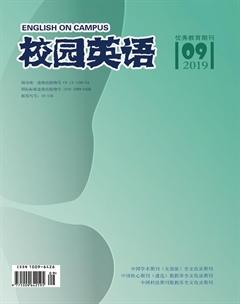The Female Consciousness of Portia in The Merchant of Venice
【Abstract】Shakespeare had depicted various female images in his works, from which Portia is a brilliant and remarkable image of women who can represent the awakening of female conscious in the Renaissance. Thus, the present study analyzed Portias thoughts and behavior in the man-dominated society.
【Key words】female-consciousness; feminism; The Merchant of Venice
【作者簡介】张鑫(1995-),长安大学外国语学院,硕士研究生,研究方向:多模态话语分析。
1. Introduction
William Shakespeare is a great and preeminent dramatist in England, the heroine of his masterpiece The Merchant of Venice, Portia, is known as the new female image of bourgeois. Shakespeare portrayed Portia as a pioneer of the uprising new class of Renaissance. However, Portia is not a completely independent woman who can control over her own life. This paper will analyze Portias thoughts and behavior in main plots in The Merchant of Venice from the perspective of feminism.
2. Analysis of Portia in feminist perspective
2.1 Characters analysis of Portia
(1) The Stage of Choosing a husband. The first sentence of Portia in The Merchant of Venice is “my little body is aweary of this great world” , which expressed her dissatisfaction with the interference in her departed father to her marriage. Various wooers appeared and Portia thought these wooers were flatulent and sottish. She told her maidservant to apply some clever tricks to avoid the man she dislikes. From this plot, we can see Portia owned self-consciousness. However, she followed her fathers will in the end and she still put herself in a subordinate position.
(2)The court confrontation. When Portia knew that the life of her husbands friend Antonio was in danger, she decided to save him without hesitation. Portia disguised herself and her maidservant as a doctor of laws and lawyers clerk respectively. Different from others anxiety, Portia stayed calm and collected to talk with Shylock. Through her tactful debate on Shylock, she saved Antonios life successfully. From this plot, Portia has become the incarnation of kindness and wisdom that looks so perfect. However, Portia just wanted to please and comfort her husband Bassanio. And she must disguise herself as a man to communicate with others in the court, which thoroughly exposes the limitations and inequality of women rights in patriarchal society.
(3) Ring event. When all of Portias property was taken over by Bassanio, she will lose the sense of security certainly, which provoked the next plot--ring event. In order to examine if Bassanio is loyal to Portia, she asked nothing but his ring as the reward for saving the life of his friend Antonio. As Jay L. Halio (2008) noted, “Since Portia also recognizes the depth of her husbands love for his friend, she is willing to defer the consummation of their marriage until the problem of Antonios forfeiture is resolved”.
The dilemma Portia created for her husband Bassanio is also a tactful compromise to the man-dominated society. Bassanio has realized that if he hands over the ring, but he broke the vow with his wife. However, he determined that the “love” for Antonio is higher than the vow for Portia finally.
2.2 The female-consciousness of Portia
Shakespeare endowed Portia the spirit of humanism from the perspective of new bourgeoisie, and he depicted Portia an ideal woman in males eyes. When her father was alive, she was controlled by her father. And she still cannot get out the control of her father even after he died. Although she chose the husband that she loved deeply, she was still controlled by her husbands will. Therefore, Portia is well-educated, rich, beautiful and quick-witted, but she cannot own an independent female-consciousness.
3. Conclusion
There is no doubt that the image of Portia in the time of Shakespeare is progressive. As the major female figure in The Merchant of Venice, Portia own virtue that coruscates the flame of humanity. Portia shows her rebellious characteristic in the drama, but she is unconsciously to obey the rule of man-dominated society and agree with her subordinate position both in or out of her family. The rules of patriarchal society are unbroken fetters for her. She is unable to change the destiny of “the second sex” defined by men. Confined by the traditions of that time and society, she can never germinate the idea to struggle with herself, thus the real female self-consciousness will also never be born in her mind.
References:
[1]Halio, Jay L. Understanding The Merchant of Venice[M]. Beijing: China Renmin University Press,2008.

